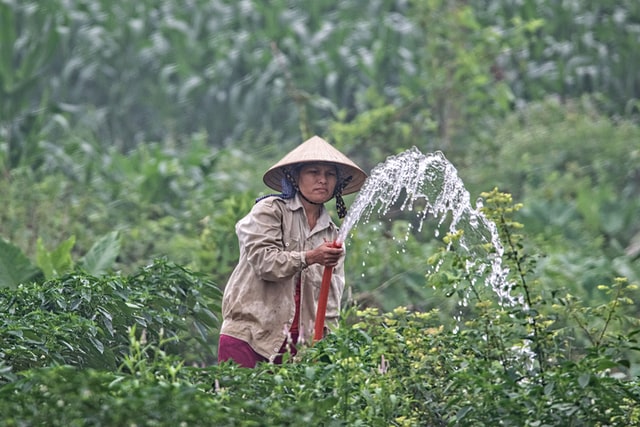SEI’s Strategic Collaborative Fund Phase 2 (SCF2) emphasizes collaborative partnerships that integrate gender and social equality and human rights-based approaches.
Theme
Climate-resilient practices to promote inclusive and sustainable agricultural systems and value chains
About the Strategic Collaborative Fund
SEI Asia, with support from the Swedish government (SIDA), launched the Strategic Collaborative Fund Phase 2 (SCF2) programme in 2018 to enhance the current 2030 Agenda efforts in Asia. SCF2 aims to foster regional cooperation and policy dialogue for sustainable development and environmental sustainability through capacity building, knowledge sharing, and increased collaboration.
Human rights and gender equality are central to SCF2, as it champions regional and inter-regional collaboration for transboundary environmental policy development. To this end, the Guidance Note on Integrating Gender and Human Rights-Based Approaches in SCF2 supports the inclusion of gender equality and human rights into the SCF2 programme. We strongly encourage the potential partner organisations to use the note as a guide for developing the concept notes. Learn more about the SCF2 programme and details for concept note submissions here.
SCF2 welcomes concept notes for regional strategic events in Asia, specifically in South and Southeast Asia, that highlight the advancement of environmental sustainability, gender equality, human rights and poverty reduction.
The proposed events should include representatives from government, private sector, civil society, research or academic institutions and development partners to ensure an inclusive and substantive dialogue.
Based on specific contexts, SCF2-supported events should benefit the Asian region, particularly marginalized groups including those living in poverty, women, youth, children, ethnic minorities and other environmentally vulnerable groups.
Specific Focus and Priority
This call aims to invite organisation(s) that can conduct a series of activities that demonstrate how to transform agricultural systems or value chains to become more climate-friendly, sustainable, resilient, and equitable. The current agricultural policy and practices supporting the global food and agricultural systems are unsustainable and increase the vulnerability of marginalised and disadvantaged groups by contributing to and reinforcing hunger and malnutrition, poverty, adverse environmental impacts, unsustainable land-use change and degradation, biodiversity loss, and social injustice. As most policies aiming to address food security focus on producing more food, more burden is being put on the agricultural systems to ‘feed the planet’. Diversifying value-added products and services, reducing postharvest loss, and adopting innovative climate financing schemes for small agricultural producers might offer a means to combine poverty reduction with enhanced environmental stewardship.
Deadline: 10 March 2022
For further information about the concept note on the topic ”Climate-resilient practices to promote inclusive and sustainable agricultural systems and value chains” please click HERE
